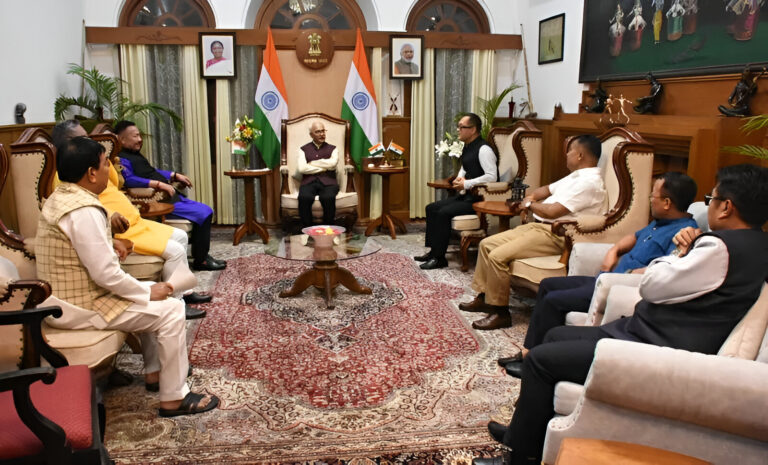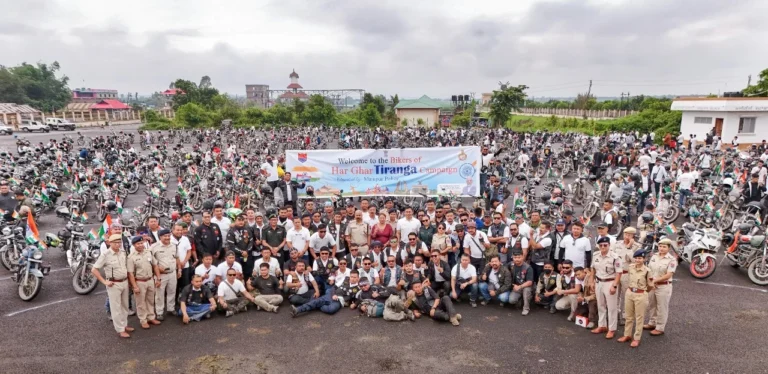Manipur Unrest: Imagi Meira Slams State on Influx Report
Summary
Imagi Meira, a women’s organization, has criticized the Manipur government for failing to address the ongoing issues related to the influx of outsiders and the unrest that has gripped the state. Their strong response followed the recent government report on the influx of migrants into the state, which they feel does not adequately represent the severity of the situation. Imagi Meira argues that this oversight has further escalated tensions in Manipur.
Understanding the Core of Manipur’s Unrest
Ethnic and Cultural Identity at the Heart
One of the key elements fueling the unrest in Manipur is the preservation of ethnic and cultural identity. The state is home to numerous ethnic groups, including the Meitei, Naga, and Kuki communities. Each of these groups has its unique identity, language, traditions, and history, and there has long been a strong desire to preserve these heritages.
The Influx of Outsiders
The debate over the influx of migrants into Manipur is one of the major drivers of the conflict. Many in the local population feel that the increasing number of outsiders has strained the state’s resources, contributed to rising unemployment, and disrupted the cultural fabric of Manipur. The issue of “outsiders” is seen not only as an economic threat but also as a cultural and social one.
Various political and civil organizations have rallied to address this concern, with Imagi Meira being one of the most vocal. The group argues that the government’s report on the issue downplays the severity of the problem and fails to account for the broader impact this influx has had on local communities.
Government’s Response to the Influx Issue
The Manipur government has attempted to address these concerns by producing reports on the influx of outsiders and proposing policy measures to regulate migration. However, many feel these measures are inadequate and have only exacerbated tensions in the state.
Imagi Meira and other organizations argue that the state’s failure to effectively manage the influx has worsened the already volatile situation in Manipur. The government’s handling of the influx issue has also fueled perceptions of neglect and unfair treatment among certain ethnic communities, further heightening the unrest.
Imagi Meira’s Role in Addressing the Unrest
Imagi Meira has taken a prominent role in addressing the unrest, especially concerning the influx of outsiders. As a grassroots women’s organization, they have used their platform to highlight the challenges faced by local communities, including the impact of migration, the preservation of cultural identity, and the need for government accountability.
Women Leading the Charge
Historically, women’s organizations have played a significant role in social and political movements in Manipur, and Imagi Meira continues this tradition. Their activism focuses on safeguarding the identity, rights, and welfare of the indigenous people of Manipur, particularly in the face of what they see as growing external threats.
Criticism of the State’s Policies
In their latest statements, Imagi Meira has been vocal in its criticism of the Manipur government’s policies, particularly its response to the influx of migrants. They argue that the state has been indifferent to the concerns of the local population and that its policies do little to address the real issues at hand.
Imagi Meira has also been involved in protests and other forms of activism aimed at drawing attention to these issues. Their efforts have brought greater visibility to the problems faced by Manipur’s indigenous communities, but the path to resolving these conflicts remains complex.
A Deeper Dive into Manipur’s Socio-Political Dynamics
Historical Context of the Influx
To fully understand the concerns over the influx of outsiders, it’s essential to look at Manipur’s history. For decades, Manipur has struggled with issues of migration and identity. The state’s proximity to international borders and its diverse population have made it a prime destination for migrants, both from within India and from neighboring countries.
Over the years, this influx has contributed to significant demographic changes, which many locals see as a threat to their cultural identity and political influence. Tensions have only intensified as these concerns have been left unaddressed by successive governments.
Ethnic Divisions and Territorial Claims
The ethnic divisions within Manipur have long been a source of conflict. Different communities, particularly the Meitei, Naga, and Kuki, have competing territorial claims and differing visions of the state’s future. These divisions have often been exacerbated by the influx of outsiders, with each community fearing that their land and resources are being taken away by newcomers.
This has led to frequent clashes and violence, with the issue of migration often serving as a catalyst for broader ethnic conflicts.
The Role of Civil Society and Activist Groups
Civil society organizations like Imagi Meira have played a crucial role in keeping these issues in the public eye. They have pushed for greater transparency from the government and have advocated for policies that protect the rights of indigenous communities.
Their activism has also drawn attention to the importance of women’s voices in these discussions. In Manipur, as in many other parts of the world, women are often the most affected by social and political instability, and groups like Imagi Meira are working to ensure that women’s perspectives are included in efforts to resolve the state’s unrest.
The Path Forward for Manipur
The road to peace and stability in Manipur is not easy, and the issue of the influx is just one of many challenges facing the state. However, there are steps that can be taken to address these concerns and pave the way for a more peaceful and inclusive future.
Policy Reforms and Dialogue
One of the most critical steps in addressing the unrest is implementing policy reforms that regulate migration and protect the rights of indigenous communities. This requires not only greater transparency from the government but also an inclusive dialogue that involves all stakeholders, including civil society organizations like Imagi Meira.
Building Trust Between Communities
Another essential aspect of resolving the unrest is fostering trust between Manipur’s various ethnic communities. This requires addressing long-standing grievances and ensuring that each community’s voice is heard in discussions about the state’s future.
The Role of the Central Government
Finally, the central government must play a more active role in resolving the unrest in Manipur. While the state government has a significant role to play, the central government’s involvement is crucial to ensuring that any solutions are sustainable and inclusive.
Conclusion: The Future of Manipur
The unrest in Manipur is a complex issue, driven by concerns over the influx of outsiders, ethnic divisions, and perceptions of government neglect. While civil society organizations like Imagi Meira are working to address these challenges, the road to peace and stability remains long.
The key to resolving Manipur’s unrest lies in inclusive dialogue, policy reforms, and a commitment to protecting the rights and identities of all of the state’s communities. Only by addressing these core issues can Manipur move towards a more peaceful and stable future.
FAQs
- What is the main cause of unrest in Manipur?
The unrest is driven by ethnic tensions, concerns over the influx of outsiders, and dissatisfaction with the government’s handling of these issues. - Who is Imagi Meira?
Imagi Meira is a women’s organization in Manipur that advocates for the rights of indigenous communities and criticizes the government’s handling of the influx issue. - How does the influx of outsiders affect Manipur?
Many locals see the influx as a threat to their cultural identity, economic opportunities, and political power, contributing to social unrest. - What role do women play in addressing the unrest in Manipur?
Women’s organizations like Imagi Meira have been at the forefront of activism, advocating for the protection of indigenous rights and greater government accountability. - What are the proposed solutions to the unrest in Manipur?
Solutions include policy reforms to regulate migration, fostering dialogue between ethnic communities, and ensuring government transparency.



